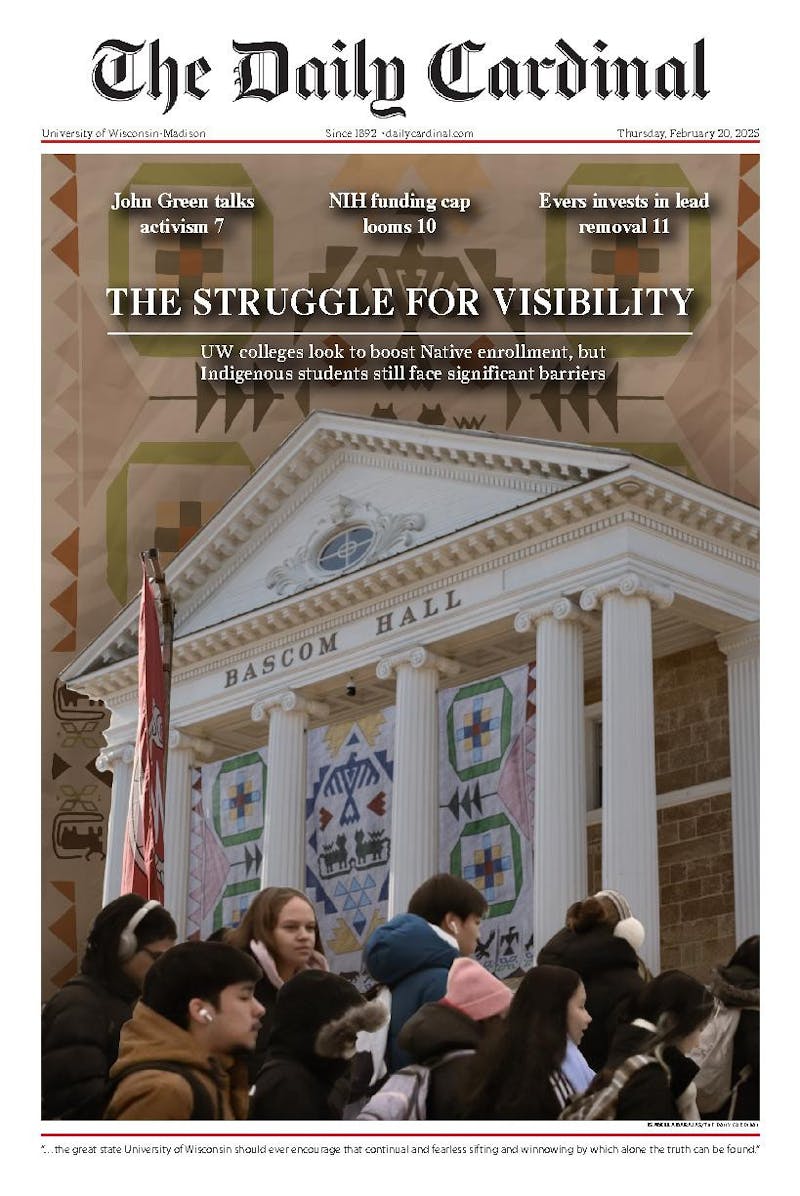""People move here to find a better way of life, but they find that it's not as welcoming as they hoped it would be,"" said Celia Jackson, co-chair of the Dane County Task Force on Racial Disparities in the Criminal Justice System.
In response to observations such as this, in 2008 the Governor's Commission on Reducing Racial Disparities in the Wisconsin Criminal Justice System compiled statistics on racial disparity in Wisconsin's criminal justice system.
Based on the Commission's recommendations as well as other reports confirming Dane County's ""severe overrepresentation of people of color in the criminal justice system,"" County Executive Kathleen Falk and County Board Chair Scott McDonell worked with the Dane County Equal Opportunity Commission to form a special Task Force whose goal would be to review the Governor's report and apply its recommendations to the problems that exist in Dane County.
The Task Force began its work in September 2008, meeting monthly. Divided into five sub-groups and comprised of county residents from law enforcement, service agencies, community advocacy groups and the courts system, the Task Force hosted presentations given by experts in the criminal justice system and held four public hearings designed as listening sessions.
These public hearings provided an opportunity for the Task Force to understand the concerns of those who are most affected by racial disparities. The majority of the public voiced concern about inequality.
According to the Task Force report, several different people testified, ""while they lived in the dangerous inner city neighborhoods of Chicago, not one of their family members had ever been arrested there—but upon moving to Dane County, nearly everyone they knew had somehow become involved in the system.""
Other testimonials described alleged racial profiling by the police, skepticism and reluctance in filing complaints, unnecessary incarceration, exorbitant fines and the ""revolving door"" system from prison to probation and back again, according to the report.
One community member said ""people feel that they can't go to the law for help,"" and another called the county's problems with racial disparities in incarceration ""a new kind of slavery."" Yet another described the fear and violation felt by a family when immigration enforcement officers ""claimed to be local police officers, knocked on doors and entered their homes without permission, demanding IDs from everyone inside and taking family members away to be deported.""
This perception that causes mistrust of authority is in contrast to the Madison Police Department as a leader in ""proactively implementing the best programs and policy changes that would directly impact racial disparities,"" according to the Task Force report.
In fact, the MPD has been making an effort to resolve differences even before the formation of the Task Force.
""We embrace pro-active, problem-solving, community-based policing models and have officers doing many things to help raise-up neighborhoods, families and individuals,"" said MPD Public Information Officer Joel DeSpain.
He added, ""We are always reviewing our policies and procedures as they relate to why our officers make contacts with citizens. It is certainly our goal that contacts are based on behavior—not race.""
After its year of work, the Task Force presented its findings to the community in addition to suggested solutions for the current problems.
One suggestion was to have the Vera Institute of Justice organization assist the district attorney's office.
Described as ""the best practice in reducing racial disparities in criminal justice,"" the Vera Institute of Justice ""helps district attorneys to collect and analyze data about their offices' structures and processes which they can then use to take corrective action,"" according to the Task Force.
Jackson also emphasized the importance of a driver's license recovery program as a way to curb the ""revolving door"" of repeat offenders.
According to the report, ""Ex-offenders returning to the community after prison face great difficulty obtaining stable housing, employment, support, and treatment,"" especially if a suspended license prohibits them from driving without fear of re-incarceration.
""Getting them licenses is crucial,"" said Jackson. Additionally, increased efforts for community education on how to deal with police encounters are essential in helping the public know what to expect.
""A lot of people don't speak English,"" Jackson said. ""Law enforcement encounters can get lost for understanding.""
Ranging from advancing data collection and analysis techniques to restorative justice measures and community education, the Task Force offered an extensive list of both funded and unfunded options that it hopes to put into action within the year.
Jackson said she is working with city and county officials to implement the recommendations.
""In the meantime, we need for people to step up to the plate and work with the OEO [Office of Equal Opportunity] and look to see how they can contribute,"" said Jackson. ""This really is a community based effort.""






